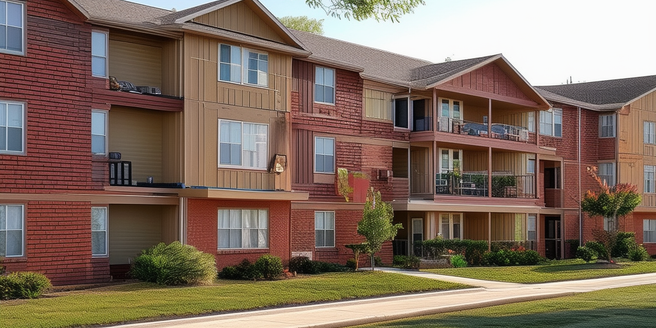Housing Assistance Programs

Types of Housing Assistance Programs
| Program Type | Description | Target Group |
| Voucher Programs | Provide financial aid to help cover rent costs. | Low-income families |
| Public Housing | Government-owned developments for low-income residents. | Low-income individuals |
| Non-profit Housing | Affordable housing offered by non-profit organizations. | Various disadvantaged groups |
| Homeownership Programs | Assistance for first-time homebuyers. | First-time homebuyers |
| Emergency Shelters | Temporary housing for individuals in crisis. | Homeless individuals |
| Rental Assistance | Programs to subsidize rental payments. | Low-income renters |
Eligibility Criteria for Housing Assistance
Eligibility criteria for housing assistance programs can vary significantly depending on the type of program and the organization offering it. Generally, applicants must demonstrate financial need, which is often assessed by comparing household income to local median income levels. Additionally, there are often residency requirements, such as living in a specific area or being a citizen or legal resident. Some programs may also prioritize certain groups, such as families with children, elderly individuals, veterans, or disabled persons. It is important to understand the specific eligibility criteria for each program to determine whether you qualify and to gather the necessary documentation when applying. Researching and meeting these criteria can improve the chances of receiving the much-needed housing assistance.
How to Apply for Housing Assistance
Applying for housing assistance usually involves several steps, beginning with researching available programs to determine which ones you are eligible for. Once you’ve identified potential programs, gather the necessary documentation, such as proof of income, identification, and residency status. Many programs require applicants to complete detailed forms in person, online, or via mail. Double-check all your documents to make sure they meet the program requirements. It is also essential to meet any application deadlines and submit all required materials. Some programs may require interviews or additional screenings as part of the application process. Staying organized and following up on your application’s status can help ensure that you receive the assistance you need without unnecessary delays.
Government-Funded Housing Programs
Government-funded housing programs are designed to help low-income individuals and families find affordable, safe, and stable housing. These programs often include public housing, housing choice vouchers (Section 8), and project-based rental assistance. Public housing provides government-owned apartments or houses to low-income residents at reduced rents. Housing choice vouchers allow eligible persons to choose their own housing, with the government paying a portion of the rent directly to landlords. Project-based rental assistance offers subsidies to developers of affordable housing units. These programs also collaborate with community organizations to provide supportive services. These programs aim to reduce homelessness and improve the quality of life for vulnerable populations by offering financial support and access to essential services.
Non-Profit Housing Assistance Organizations
Non-profit housing assistance organizations play a crucial role in helping low-income families and individuals secure affordable housing. These organizations often provide services such as housing counseling, financial education, and access to affordable housing options, including rental units and homeownership programs. Many non-profit organizations also advocate for policies that promote affordable housing and work to create community-based solutions to address housing shortages. They constantly innovate to maximize the effectiveness of their programs. Additionally, they offer support services to help residents maintain their housing stability. By partnering with government agencies, private donors, and volunteers, non-profit housing organizations help to bridge the gap between available resources and those in need, ensuring that more people have access to safe and stable housing.
Emergency Housing Assistance Options
Emergency housing assistance options are crucial for individuals and families facing unexpected crises such as homelessness, natural disasters, or domestic violence. These programs provide temporary housing solutions and supportive services to help stabilize individuals during difficult times. Local governments and non-profit organizations often collaborate to ensure these resources are accessible. Emergency shelters offer short-term accommodations and basic necessities like food and clothing. Transitional housing provides a bridge between emergency shelters and permanent housing, offering longer-term support and case management services. Additionally, some programs offer financial assistance to help cover rent, utilities, or relocation costs. By addressing immediate housing needs, emergency housing assistance programs play a vital role in preventing further instability and helping individuals rebuild their lives.
Rental Assistance Programs
Rental assistance programs are designed to help low-income individuals and families afford safe and decent rental housing. These programs often provide subsidies or direct payments to landlords on behalf of eligible tenants, reducing their out-of-pocket rent costs. Programs such as the Housing Choice Voucher Program (Section 8) allow participants to choose their own housing while receiving rent subsidies. Additionally, other rental assistance programs may offer supportive services like budgeting assistance or job placement to help tenants achieve long-term stability. Other rental assistance programs may be offered by state and local governments or non-profit organizations, providing varying levels of financial support based on need and availability. By alleviating the financial burden of rent, these programs help prevent homelessness and promote housing stability for vulnerable populations.
Homebuyer Assistance Programs
Homebuyer assistance programs are designed to help first-time homebuyers overcome financial barriers to purchasing a home. These programs often provide down payment assistance, low-interest loans, or grants to eligible individuals and families. In addition to financial aid, some homebuyer assistance programs offer resources to help navigate the complexities of buying a home. Some programs offer financial counseling and education to help prospective homebuyers better understand the home-buying process and manage their finances. Homebuyer assistance programs can be offered by government agencies, non-profit organizations, or private lenders. By providing the necessary financial support and resources, these programs aim to make homeownership more accessible and achievable for low- to moderate-income households, fostering long-term stability and wealth-building opportunities.
Supportive Housing Services for Disabled Individuals
Supportive housing services for disabled individuals are designed to provide stable, accessible, and affordable housing combined with necessary supportive services. These programs often offer case management, health care, mental health services, and assistance with daily living activities. Additionally, vocational training and employment services may also be available to help residents achieve greater self-sufficiency. The goal is to help disabled individuals live independently and improve their overall quality of life. Supportive housing can include specialized units within larger housing developments or individual apartments with added accessibility features. By integrating housing with supportive services, these programs address the unique needs of disabled individuals, promoting their independence and enhancing their ability to participate fully in their communities.
Housing Assistance for Veterans
Housing assistance programs for veterans focus on providing affordable and stable housing solutions for those who have served in the military. These programs often offer rental assistance, home loan guarantees, and grants for home modifications to accommodate disabilities. Organizations such as the U.S. Department of Veterans Affairs (VA) provide a range of housing support services, including the VA Homeless Programs, which aim to prevent and end veteran homelessness. These initiatives are crucial for ensuring that veterans have access to safe and secure housing. Additionally, non-profit organizations and community groups collaborate to offer housing resources, supportive services, and financial assistance specifically tailored to the needs of veterans. By addressing housing challenges, these programs honor the service of veterans and help them achieve long-term stability.
